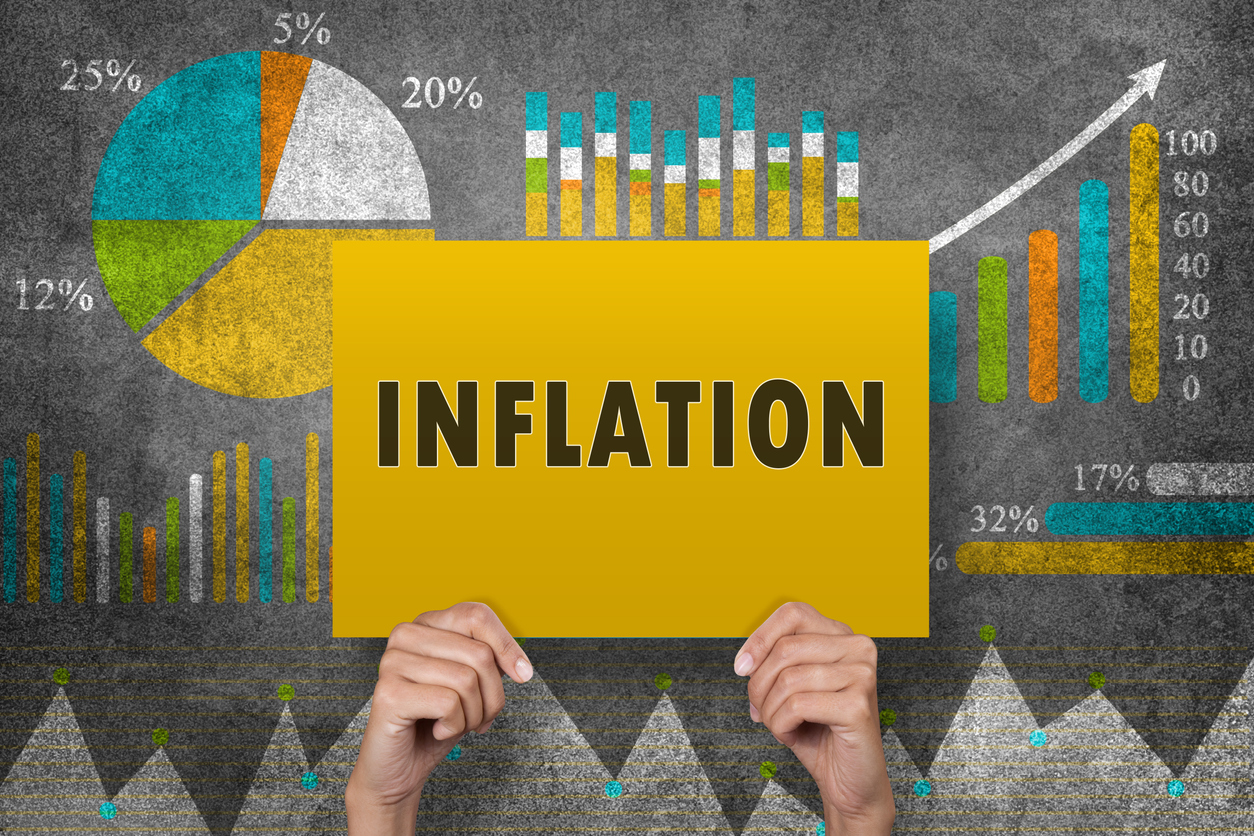
Although inflation has been a relatively benign threat in recent years, it’s become an increasing concern in 2021. But how worried should savers be, and what can they do to make sure inflation doesn’t seriously erode the value of their assets?
Fears of higher inflation have been dominating investment markets throughout this year. Back in February, the Bank of England’s chief economist Andy Haldane caused a stir when he compared inflation to a “sleeping tiger” that may prove “more difficult to tame” than he, or his fellow central bankers around the world, would like.
What is inflation?
In a nutshell, inflation is the rate at which the price of goods and services increases over time. It is the reason why a single can of Coca-Cola cost 45p in 2007, but today will set you back 90p. Inflation is one of the key measures of financial prosperity because it determines what consumers can afford to spend their money on.
Inflation is usually expressed as a percentage increase (or decrease) in prices over time. The Bank of England has set itself a target of keeping UK inflation at around the 2% level. So, for example, if the cost of a litre of petrol increases by 2% a year, then motorists will need to spend 2% more at the pump than they did last year.
Why is inflation particularly bad for savers?
Inflation can be good news for holders of assets, particularly homeowners and the owners of some shares, especially if the value of their assets rises faster than the general level of inflation. However, inflation is usually bad news for anyone with a fixed income or those that rely on savings interest.
People with large cash amounts, as well as bond holders, could suffer most. Cash loses value very quickly when inflation starts to pick up, and investors start selling bonds – which pay a fixed rate of return – because inflation eats into the real value of that income. Higher inflation also increases the prospect of the Bank of England raising interest rates to push inflation back down.
Of course, the main reason why those on fixed incomes worry about inflation is that it erodes the purchasing power of money. If inflation is rising, it means the money in your pocket doesn’t go as far. For savers, if the money in their savings account isn’t rising at least in line with inflation, then the value of what they can purchase with that money is declining over time, and they run the risk of seeing their standard of living fall.
Why is inflation a concern now?
Over the past 12 months or so, inflation in the UK has been fairly subdued. That’s because the demand for goods and services has been low, thanks to the pandemic. However, while inflation has remained below the Bank of England’s 2% target since 2019, the Bank itself expects an inflation surge this year, as the economy recovers from its COVID-19 slump, and more demand pushes up the prices of goods and services.
And fears over rising inflation are not just confined to the UK. Across the globe, over the last year, enormous economic stimulus packages have been implemented by governments to help prop up their economies as countries experienced widespread lockdowns. If higher inflation is on its way, then it looks likely to be a worldwide problem.
Should you be on your guard for inflation?
Opinion is divided on whether inflation is going to become a serious problem for savers and retirees in the next few months. But it’s not a bad idea to plan for higher inflation and make changes to your finances just in case.
For example, now would be a good time to think about whether you have any savings held in savings accounts earning a tiny rate of interest, and whether you would be better off investing that money in ways that allow it to earn a higher return.
Retirees often hold more of their pension and other investments in cash or fixed-income assets. If this applies to you, it might be worth considering purchasing more equity investments that historically tend to perform well when inflation is rising. Finally, we can also undertake a review of your retirement plan to make sure it remains on track, as well as taking higher inflation into account when determining how much income you will need to give you the retirement that you want.
Riding out the inflation storm
With the threat of higher inflation looming, those reliant on savings income or fixed incomes should consider taking a long-term view while making some slight short-term adjustments. The important thing to remember is that there are several things you can do to limit the potential impact of inflation on your savings or your pension fund. With a few structural changes, we can help you to position your finances to benefit from inflation, instead of falling victim to it.
If you are interested in discussing your investment portfolio, cash savings, or pension with one of the experienced financial planners at FAS, please get in touch here.
This content is for information purposes only. It does not constitute investment advice or financial advice.





